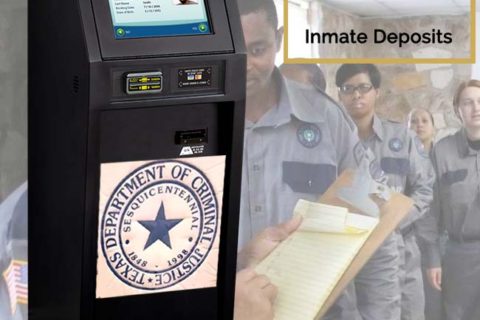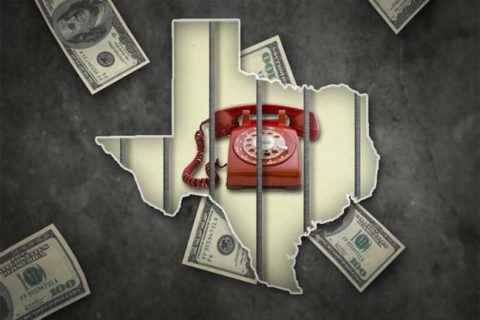There are several levels of custody in the Texas Department of Criminal Justice or TDCJ. These levels of custody are different. For anyone who wants to know about these levels of custody, you are in the right place as you can find all the information below.
As mentioned earlier, there are several levels of custody in the TDCJ. These include:
General Population Level 1
Characteristics:
- There is no requirement for a more restrictive custody.
- Based on the recommendation of mental health professional treatment staff, there is no evidence of current psychological instability, which would give the negative impact to the ability of the defender to successfully function in General Population Level 1 custody.
- There are no current or prior convictions for several things such as capital murder and murder of voluntary manslaughter. There are no current or prior convictions of any kind where the offender intentionally caused the death of someone. There are no current or prior convictions of kidnapping, injury to a child, injury to the elderly, escape or stalking.
- There are no big disciplinary convictions that result in extreme penalties within the past 24 months for offender and or staff assaults, whether with or without a weapon. Besides, there are also no disciplinary offenses for extortion or sexual abuse.
- There is no placement of security precaution designators for escapes, staff assault, and hostage. Besides, there are no predator codes of PD or PP.
- There is no placement of security precaution removal code of escape removal, staff assault removal, and hostage removal.
- There are no unresolved felony or United States Immigrations Service detainers. There are no warrants for State Jail offenders.
- In order to get promoted to G1/J1, there should be a clear conduct record. That record should have no disciplinary convictions that result in big penalties. It should be for at least 6 months, unless a State Jail Offender. Then, 3 months may be approved for immediate assignment to General Population Level I (G1/J1).
- There is no pattern of freeworld convictions for offenses of violence. There are also no freeworld convictions for offenses of sexual misconduct.
- They have to be within 24 months of parole eligibility.
- There is no confirmed or suspected STG.
Boundaries:
- They are eligible for contact visits as long as the visitors are included on the approved visitation list.
- There is a possibility to be eligible for consideration for an emergency absence.
- They are eligible for consideration to join in specialized vocational training programs.
- On job assignment or activities inside or outside the security perimeter, unarmed periodic supervision is required.
- It is possible for them to be housed in a cell or dorm.
- Recreation – Institutional offenders are allowed at least 4 hours weekdays, 7 hours weekends.
- Commissary – They are allowed to make commissary purchases for a maximum of $75 every 2 weeks.
- Property – They are allowed to keep personal property with the exception of items restricted through disciplinary actions or under AD-03.72.
- Jobs – They may be assigned to any job deemed appropriate by the unit administration.
- Education Programs – They are eligible for consideration to join in academic programs as long as certain program criteria are met.
General Population Level 2
Characteristics:
- There is no requirement for a more restrictive custody.
- There is no recent pattern of in-prison assault behavior 3 or more separate disciplinary convictions that result in major punishment within the past 24 months for offender and or staff assaults whether it is with or without the weapon.
- To get promoted to Level II, there should be a clear conduct record with no disciplinary convictions that result in major penalties for at least a period of 6 months with the exception of State Jail Offender. Then, 3 months.
- It is a must for offenders committed to TDCJ with 3G offenses for sentences of 50 years or more to have served 10 years flat time to be eligible for General Population Level II custody.
- It is a must for offenders committed to TDCJ-CID with non-3% offenses for sentences of 50 years or more to have served 5 years flat if they want to be eligible for General Population Level II custody.
- There is no placement of security precaution designators for escape, staff assault, and hostage.
- There is no placement of security precaution removal code of escape removal, staff assault removal, or hostage removal.
Boundaries:
- They are eligible for contact visits with immediate family members.
- They may be eligible for consideration for an emergency absence.
- On job assignment or activities inside or outside the security perimeter, direct armed supervision is needed. As for inside the security perimeter, indirect supervision is important.
- Recreation – Institutional offenders are allowed 4 hours weekdays, 7 hours weekends.
- Commissary – They are allowed to make commissary purchases for a maximum of $75 every 2 weeks.
- Property – They are allowed to keep personal property with the exception of items restricted through disciplinary actions or under AD-03.72.
- Jobs – They may be assigned to any job deemed appropriate by the unit administration. As for the offenders in this category, they may not be assigned to maintenance work, clerk position, dock worker, or any job where they would get access to more than one area of the unit.
- Education Programs – They are eligible for consideration to join in academic or vocational programs if certain program criteria are met.
General Population Level 3
Characteristics:
- There is no requirement for a more restrictive custody.
- There is no recent pattern of in-prison assaultive behavior.
- The offender has to get a clear conduct record to be promoted to General Population Level III, which should be no disciplinary convictions that result in major penalties for at least a period of 6 months.
- It is a must for offenders who committed to TDCJ for sentences of 50 years or more for a 3G offense to serve 10 years.
- It is a must for offenders who committed to TDCJ for sentences of 50 years or more for a non-3G offense to serve 5 years.
- There is no placement of security precaution designator of escape, staff assault or hostage.
- An offender will be prevented from getting assigned to a custody less restrictive than 3G by placement of a security precaution removal code of escape, staff assault removal or hostage removal.
- Those convicted of Capital Murder and sentenced to life without parole.
Boundaries:
- They are eligible for contact visits with immediate family members.
- They may be eligible for consideration for an emergency absence.
- On job assignment or activities inside or outside the security perimeter, direct armed supervision is needed. As for inside the security perimeter, indirect supervision is important.
- They may be placed in a cell or dorm.
- Recreation – They are allowed 4 hours weekdays, 7 hours weekends.
- Commissary – They are allowed to make commissary purchases of a maximum of $75 every 2 weeks.
- Property – They are allowed to keep personal property with the items restricted through disciplinary actions or under AD-03-72.
- Jobs – They may be assigned to any job with exception of maintenance worker, SSI, any other clerk position, dock worker, or any job where they would get access to more than one area of the unit.
- Education Programs – They are eligible for consideration to join in academic programs if certain program criteria are met. As for access to vocational programs, it will be determined by Warden based on the location of vocational shops.
General Population Level 4
Characteristics:
- There is no requirement for a more restrictive custody.
- They don’t qualify for a less restrictive custody assignment.
- They have just demonstrated a positive change in behavior and attitude and were in General Population Level V custody in the past.
- 2 or more non-assaultive disciplinary convictions result in big penalties within the past 6 months.
- A disciplinary conviction that results in a big penalty for offender or staff assault without a weapon within the past 12 months.
- If the offender is not assaultive or aggressive in nature, Line Class II, III time earning status, Institutional offender. When determining appropriate custody assignment, several things such as age, physical size and the circumstances surrounding any assaultive disciplinary offenses will be taken into consideration.
- The offender will be prevented from being assigned to a custody less than G4/J4 by staff assault or hostage if they escape. Those with ES, SA, and HS designators have to be assigned to a facility that has Level 5.
Boundaries:
- In general, they are allowed a visit every weekend. They are ineligible for contact visits. S3 and S4 Institutional offenders that have one year major disciplinary should be allowed to get contact visits with immediate family members.
- They are ineligible for emergency absence.
- On job assignments and activities outside the security perimeter, direct armed supervision is required. Inside the security perimeter, direct supervision is required.
- They have to be placed in a cell especially made for housing General Population Level IV custody offenders. It is possible for the custody to be placed in dorms designed for housing General Population Level IV.
- Recreation – Institutional offenders are allowed 4 hours weekdays.
- Commissary – They are in general allowed to make commissary purchases for a maximum of $30 every 2 weeks. As for SAT III, SAT IV, and State Jail offenders with 1 year clear major disciplinary, they should be allowed to make purchases up to $75 every 2 weeks.
- Property – They are allowed to keep personal property with the exception of items restricted through disciplinary actions or under AD-03.72.
- Jobs – In general they will be assigned to field force and secure jobs inside the perimeter as designed by the Warden. They will not be assigned to maintenance workers, SSI, any other clerk position, dock worker, or any job where the offender would get access to more than one area of the unit.
- Education Programs – Whether they are allowed to participate in educational programs or not will be determined by the Warden on the unit by unit basis and certain program criteria. Besides, the Warden will also determine access to vocational programs based on location of the vocational shops.
General Population Level 5
Characteristics:
- One or more disciplinary convictions that result in a big penalty for an assault with a weapon on staff or offenders within the past 24 months.
- 2 or more disciplinary convictions that result in big penalties for offender or staff assault without a weapon within the past 12 months.
- If the offender is assaultive or aggressive in nature, primarily line I, II, Iii time earning status or State Jail offender. When determining appropriate custody assignment, several things such as age, physical size and the circumstances surrounding any assaultive disciplinary offenses will be taken into consideration.
- An offender will be prevented from being assigned to a custody less restrictive than G5/J5 if they escape from a TDCJ secure adult correctional facility within the past 5 years.
Boundaries:
- In general, they are ineligible for SAT status good conduct time credits.
- They are ineligible for contact visits.
- They are ineligible for an emergency absence.
- On job assignments and activities outside the security perimeter, direct armed supervision is required. Inside the security perimeter, direct supervision is required.
- They must be placed in a cell specifically made for housing only General Population Level V custody offenders.
- Recreation – Institution offenders are allowed 2 hours a day.
- Commissary – They are allowed to make commissary purchases for a maximum of $20 every two weeks.
- Property – They are allowed to keep personal property with the exception of items restricted through disciplinary actions or under AD-03.72.
- Jobs – They are mainly assigned to field forces. They may not be assigned to maintenance workers, SSI, any other clerk position, dock worker, or any job where the offender would have access to more than one area of the unit.
- Education Programs – In general they are ineligible to participate in educational programs. However, they may be eligible in specific situations such as the graduation process.

A bookworm and researcher especially related to law and citizenship education. I spend time every day in front of the internet and the campus library.





